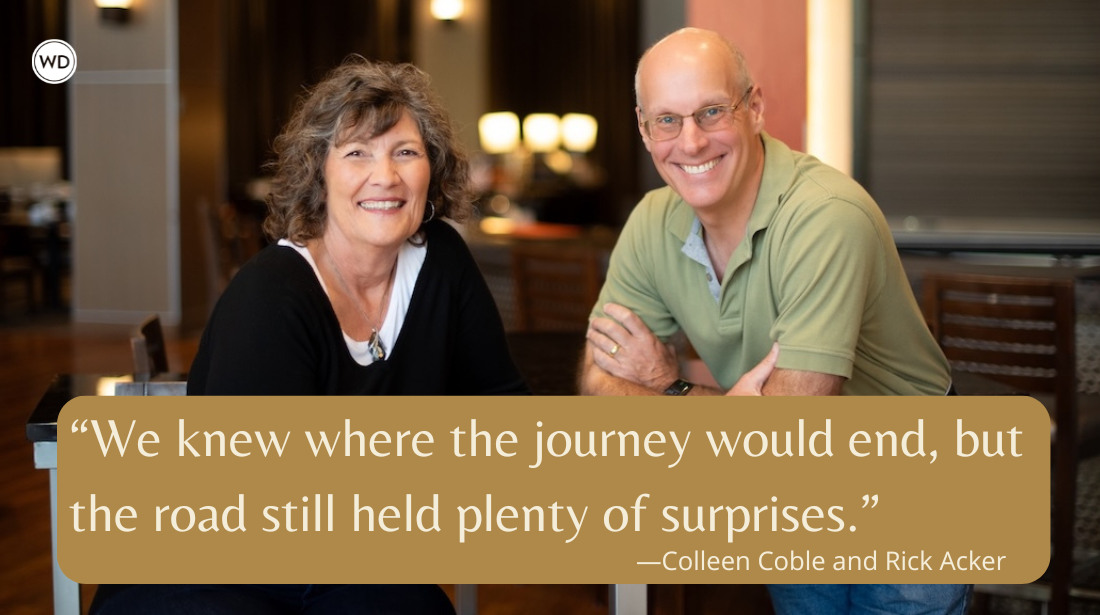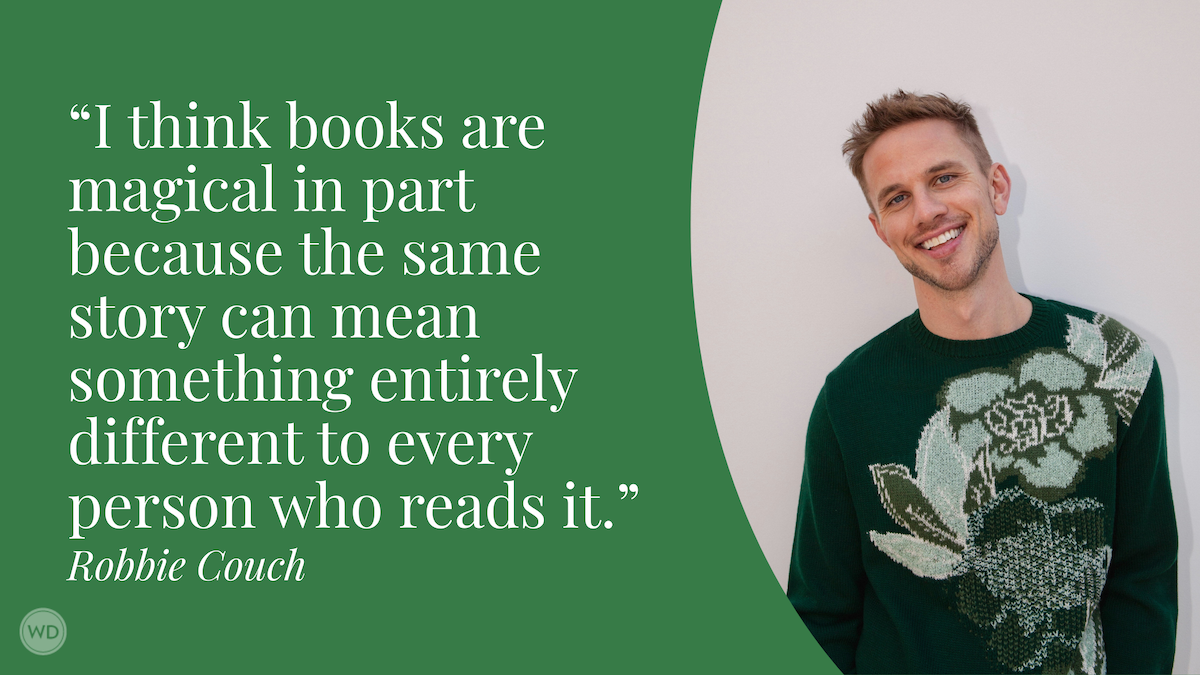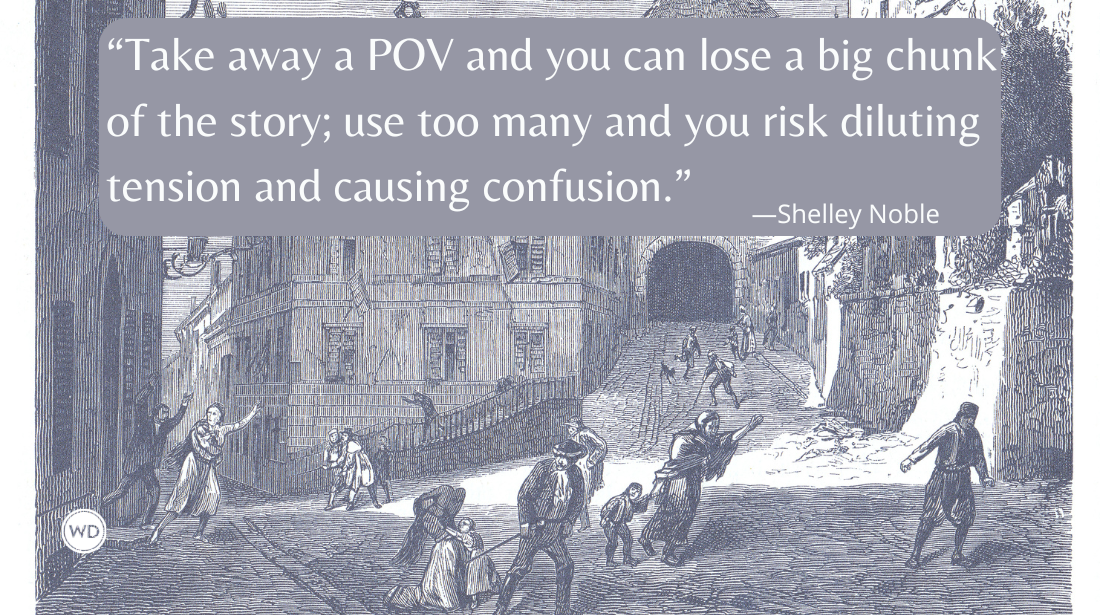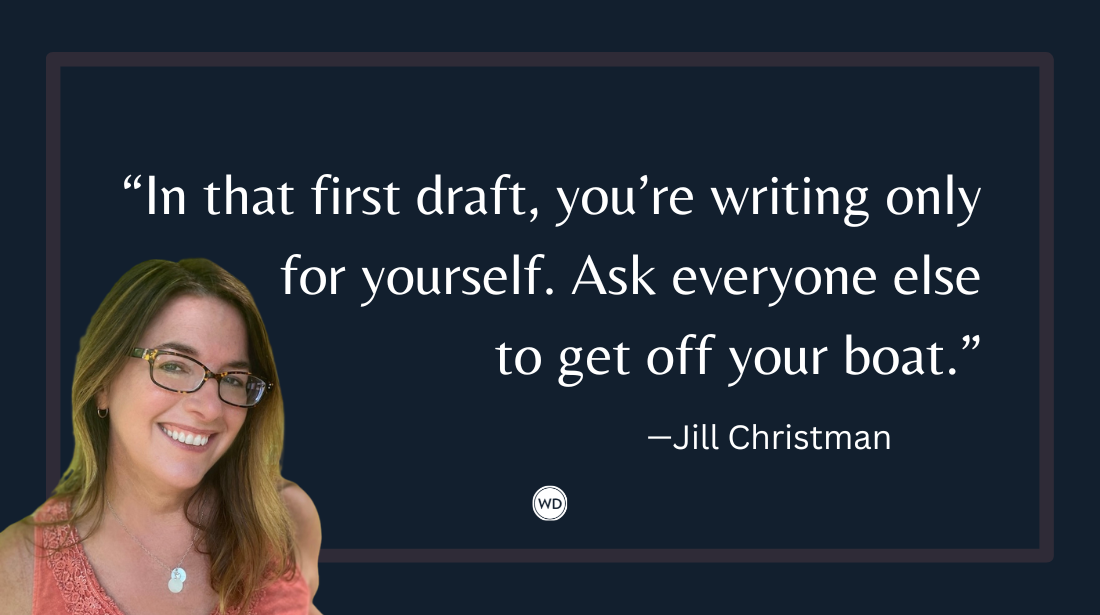How to Build a Marketing Platform
Here are 10 simple steps that will take your visibility from zero to standout in a short time, while also giving you ample opportunities to flex your expertise, carve out your niche topic and connect with your audience. by Christina Katz
The writing world is abuzz with one word these days—and that word is “platform.” But many writers are left wondering: What the heck is a platform? Why do I even need one? And the biggest question of them all: How do I start building mine?
If this describes you, don’t sweat it. Platform is a simple word to describe a complicated process—a process that’s been shrouded in mystery until recently. If you’re wondering what the difference is between a completely unknown writer and a well-known writer, I can tell you. The well-known writer has influence. In order for you to build influence, you need to create and launch a platform that communicates your expertise, credibility and integrity to others quickly and concisely.
A strong platform includes things like a Web presence, classes you teach, media contacts you’ve established, articles you’ve published, public speaking services you offer and any other means you currently have for making your name (and your future works) known to your readership. Whether you write fiction, nonfiction, poetry, screenplays, songs, copy or even ghostwritten manuscripts, if you’re not looking at your writing career as a big-picture proposition that includes platform development, you need to start now.
The benefits of having a solid platform abound. Increased media exposure, blog buzz, invitations to speak, fully enrolled classes and a surge in readers can lead to career opportunities such as interest from agents and editors, book deals, increased book sales and, ultimately, higher income from multiple sources. In the short run, making the decision to start becoming more visible is the first step toward long-term literary success. Once you establish a platform, it can work for you 24/7, reaching readers even as you sleep.
To start developing your platform, you’ll need to make some important choices about your topic, audience and the ways you interact best with others. No matter what kinds of writing you regularly produce, your platform development will proceed more smoothly and quickly when you take these three aspects into thoughtful consideration:
1. A CLEARLY IDENTIFIED BODY OF EXPERTISE. The first thing you need to know and communicate is what defines you and your expertise. If you don’t know who you are and what you uniquely offer, how will anyone else? Think of this as cultivating your identity. Rather than the overused and impersonal term “branding,” identity nods to the importance of keeping things real and staying true to yourself, even while making self-promotion a priority.
2. A DISTINCT NICHE SO YOU CAN STAND OUT. With your identity in hand, how are you different from all of the other writers out there? These days, you have to communicate who you are and what you do quickly. Attention spans are getting shorter, so being able to summarize your strengths concisely is critical. Platform isn’t your set of credentials or your résumé; it’s current and evolving on an ongoing basis. As what you write about grows and changes over the years, you’ll need to constantly revisit and rewrite the words that describe what sets you apart from the pack.
3. AN ONGOING RELATIONSHIP WITH A TARGETED AUDIENCE. Clarifying who your readers are will bring your platform into perspective. If you’re vague about identifying your audience, the whole writing process takes longer and typically requires more rewriting than if you zoom in from the get-go. This applies to books, blogs and everything else you write, no matter the form or genre. Once you identify your audience and start speaking to it directly, the ongoing dialogue will spark all kinds of ideas, connections and opportunities to catalyze your relationship over time and create community.
Peek into the weekly schedule of a writer who has influence, and you will notice that she’s focused on platform growth. Very likely her planner is full of commitments, appointments and deadlines, including scheduled time to write. You’ll probably notice a steady stream of tasks to help her increase visibility, such as speaking gigs, Web editing, and curriculum, flyer or book proposal development. Once you start working on developing your platform daily, your writing career will gain momentum. Here are 10 simple steps that will take your visibility from zero to standout in a short time, while also giving you ample opportunities to flex your expertise, carve out your niche topic and connect with your audience.
1. FIND YOUR TRIBES.
Research five or six professional associations related to your topic, target audience or professional goals. For example, if your topic is the magic of botanicals, your audience is gaming enthusiasts, or your ambition is to become a published author, conduct an Internet search of groups that cater to gardeners, gamers or aspiring authors. Then narrow down your selections to the three that make the most sense for your goals. Once you’re a member, get in touch with the administrators and introduce yourself. Ask how you can become fully involved. Take advantage of appropriate opportunities to share your breaking professional news. In a year, assess how well each group benefits your career. Thumb’s up, rejoin and stay active. Thumb’s down, try another.
2. DON’T NETWORK—CONNECT.
Not a natural networker? If the prospect of “working the room” sounds daunting, lower the stakes. Just show up to an event or meeting. Then connect by striking up a conversation with the person sitting right next to you. “Shy writer” C. Hope Clark prides herself on overcoming her resistance and putting herself out there whether she feels like it or not. “You may hate it,” she says, “but it’s a necessary part of doing business.” She’s right. Tell yourself to just come as you are and be friendly and open. It’s enough.
3. SERVE TO LEARN.
Volunteers are smart. They know that helping out feels good, and when you feel good, everything goes better than it would if you dwelled on feeling nervous or self-conscious. There are countless literary event volunteer opportunities around the country. So volunteer—especially if you don’t have the means to participate in the kinds of events and programs you’d like to. It won’t hurt. In fact, it will very likely help by putting you right in the mix. Showing up is 50 percent of the secret to success. Young-adult author Susan Fletcher learned this 20 years ago at a writing conference where she was a volunteer. Her role as an airport shuttle driver led to a chance encounter with an editor who’d recently rejected her work. Rather than being resentful, she convinced him to let her view the interoffice notes about her submission. Thanks to her desire to learn what she needed to advance her career, Fletcher gained the insights necessary to adapt her submission and eventually broke in. Today, she’s published several books, including the award-winning YA novel Alphabet of Dreams.
4. GIVE PUBLIC READINGS.
Are you an introvert? If so, you might not believe you’ll ever be able to get up in front of a crowd, much less wow an audience. But if you’re in the writing biz for the long haul, you’ll likely be asked to read your work. Take, for example, Sage Cohen, author of Writing the Life Poetic. “The first time I ever read my poetry publicly, I doubted I’d survive,” she says. But she did survive, and today she uses the initial jolt of fear to “energize” her performances. Even if your instinct is to avoid such appearances, make it a rule to take deep breaths and accept any invitations that come your way. Even better, seek out smaller speaking opportunities in your area to get yourself started. Experience is the best training.
5. LEARN TO TEACH.
Forget what you’ve heard. Teaching is for those who do. Teaching asks you to put yourself in someone else’s shoes. What could be a better exercise for a writer? Teachers like me have built-in test markets (students) for ideas. We get to find our groove interacting with groups. We understand the importance of addressing audience needs up close and personal. Teaching and writing feed off of each other and create synergy that can increase professional momentum. Teaching has informed my career more than any other nonwriting work I do; I now work with more than 100 writers a year, many of whom go on to achieve publication or land book deals.
6. SPEAK UP.
Professional writers understand that speaking and selling books go hand in hand. And though not all professional writers choose to become professional speakers, many do. Certainly, if you want to spur awareness of a book, speaking on your topic to groups ranging in size from tens to hundreds is a smart choice. Author Lee Silber has written 14 books, most recently Rock to Riches. “The best thing I have done—and continue to do—is speak at conventions and to corporations,” he says.
7. START SOMETHING.
I started hosting a local literary series so I wouldn’t have to drive any distance to hear authors speak. In doing so, I found a way to give back to writers in my local community, added a regular event to the arts council’s roster, provided a publicity opportunity for our local grocery store and Starbucks, gave an intern from the local high school something to put on her college applications and made my local library director happy by bringing folks in on Sunday afternoons. How might you do something self-serving that might fill a need for others?
8. PEN ARTICLES.
Allison Winn Scotch freelanced for national women’s magazines for years before she landed her first book deal, a novel, The Department of Lost and Found. Her second novel, Time of My Life, quickly climbed the ranks to The New York Times bestseller list after its release last fall. She says her familiarity with magazine editors was a boon to sales because those editors “likely picked up my galley faster than they might have picked up someone else’s, and I got a lot of great magazine exposure as a result.”
Children’s author Elizabeth Rusch, whose picture book A Day With No Crayons recently won an Oregon Book Award, published four titles in one year. She garnered interest from publishers by attaching a second sheet to her book query identifying herself as an author who had reached millions of readers over the past 12 years as a freelance writer. This demonstrated that she, like Winn Scotch, was already a more likely choice for book reviews and endorsements.
Both novelist Marc Acito, author of How I Paid for College and Attack of the Theater People, and memoirist Gail Konop Baker, author of Cancer Is a Bitch, became more visible by writing columns. Acito self-syndicated his humor column through gay newspapers and then mentioned his growing number of readers in his book query. Konop Baker wrote a column for the online journal Literary Mama and impressed an agent, who encouraged her to transform the columns into a memoir.
9. OFFER ASSISTANCE.
As writers, we’re typically good at keeping our noses to the grindstone and cranking out projects on a deadline, but we can really miss the cruise ship when it comes to what else we might be able to do with the kernels of wisdom we glean. In my latest book, Get Known Before the Book Deal, I explore four ways to leverage expertise that can lead to book-length projects: coaching, consulting, counseling and training. Essentially, you need to realize when you have something to offer and then find the most appropriate way to share it.
10. CREATE A ONE-PAGER.
Over breakfast in 2005, mental health author Julie Fast taught me how to whip up a one-pager, an easy form that summarizes your platform. I’ve been using it—and helping others do the same—ever since. A one-pager lists and illustrates in two columns your publication credits, media experience, speaking credentials, professional affiliations, online readership, notable education and awards won. Carry it to conferences and literary events. Any time you’re pitching a book, you’ll want to include your one-pager to make a bigger impact and demonstrate your marketing savvy.
Does all of this sound like too much work? What if you’re shy, reluctant or skeptical that all of this effort isn’t going to pan out? Maybe you have a full-time job in addition to your writing endeavors—and this sounds like another one. Or maybe, like me, you’re a busy mom. Perhaps you don’t have much money to invest, or are so focused on your writing that you shudder at the thought of growing your marketing skills simultaneously. These are common concerns. Don’t let them stop you from getting started.
Platforms take time to establish, not to mention considerable energy to launch, but in the end they raise you above the pack. So make a commitment to building yours. Carve out daily time, seek out more resources on the topic or integrate platform development accountability into the format of your existing writing group. By getting off to a solid start, you’ll conserve time and energy in the long run. And be sure to pace yourself—you’ll be working on maximizing your visibility for the rest of your career, or at least as long as you plan to write. [WD]
This article appeared in the May/June issue of Writer's Digest.Click here to order your copy in print. If you prefer a digital download of the issue, click here.









